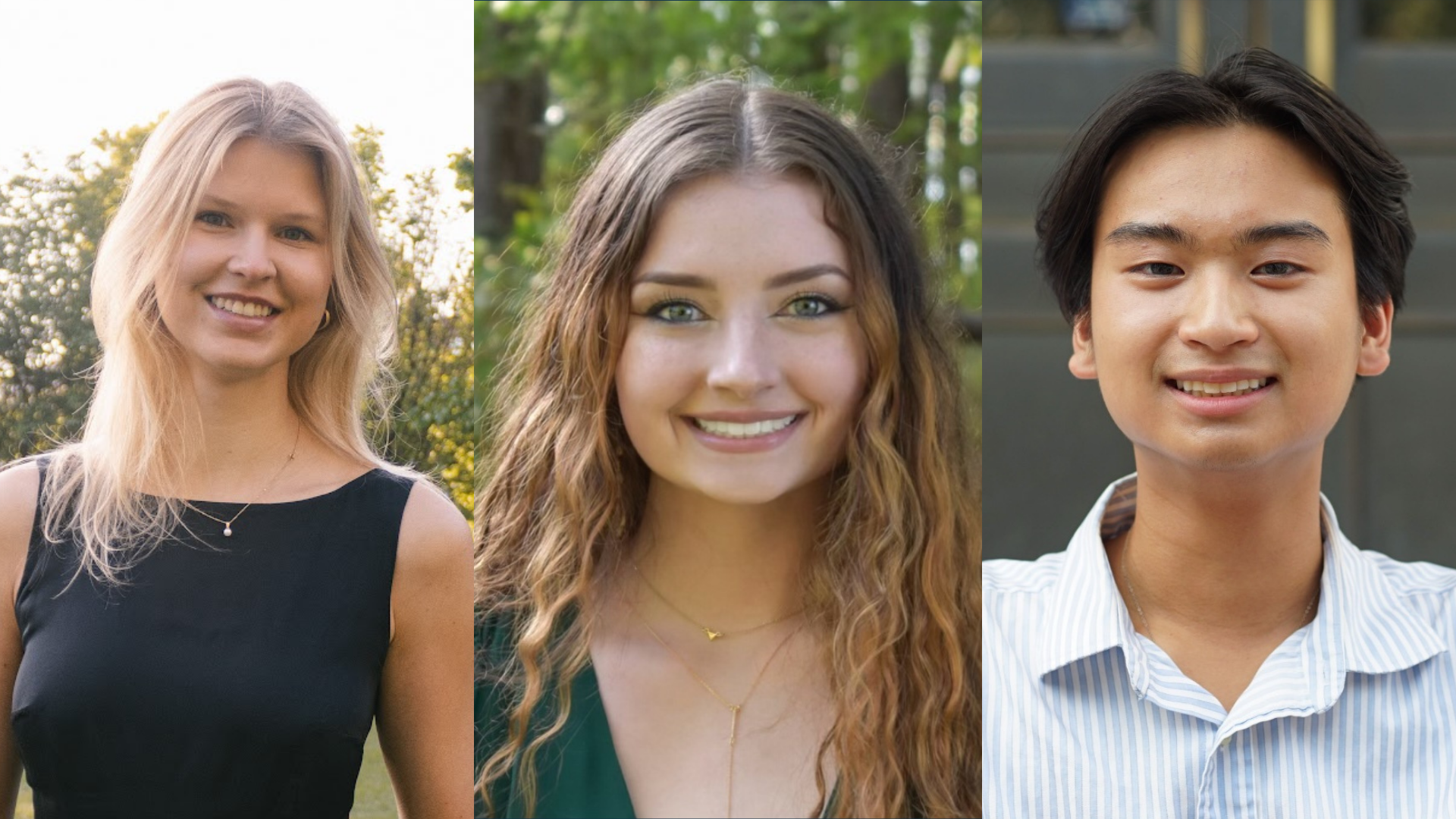From Trash to Treasure: Practicum Student Team Identifies Opportunities to Turn Waste into Biogas
A student team in the Sustainable Business Consulting Practicum provides recommendations on sourcing feedstocks for conversion into renewable natural gas.
The gas upgraders at Lawnhurst Farms, part of Brightmark’s renewable natural gas project.
Hands-on, real-world experience: This is the promise of a business school practicum. For over ten years, the Sustainable Business Consulting Practicum at the Georgia Tech Scheller College of Business has been lauded by students and host companies alike. Adam Zenker (MBA ’18) described the practicum as “truly one of a kind.” The course is co-taught by Professor of the Practice Michael Oxman and Lecturer Bob Lax. Students address real business and sustainability problems companies are facing. Oxman says, “Time and time again, the students come through with thoughtful and well-researched strategies and recommendations.” Many clients come from the Drawdown Georgia Business Compact (Compact), an initiative of the Ray C. Anderson Center for Sustainable Business. Compact members are committed to helping Georgia reach net zero emissions by 2050. This ambitious goal requires an “all hands on deck” approach, including collaboration between current and future business leaders. This article about a project for Brightmark is the second in a series of spotlights on practicum projects for Compact Members from the 2024-25 academic year.
Brightmark founder and CEO Bob Powell (EE ’88, MBA ’90) says he started the company with one goal in mind: to create a world without waste. “At Brightmark, our vision has always been to solve complex environmental challenges on a global scale. We work with businesses from all parts of the value chain to solve environmental challenges with innovative technologies,” says Powell.
Joining the Drawdown Georgia Business Compact (Compact) helped Brightmark connect with leading organizations that are addressing climate solutions. Two focus areas for Brightmark – renewable natural gas (RNG) and advanced plastic recycling – are also being pursued by the Compact as high-impact solutions for reducing carbon emissions. Powell says, “We have been impressed by the action and progress created from the working groups in RNG, and materials and plastic circularity.”
In Fall 2024, Brightmark tapped the talent and expertise of the Sustainable Business Consulting Practicum to help them work towards an RNG solution. Brightmark has developed and deployed anaerobic digestion technology: that is, capturing the biogas that is produced when organic waste breaks down in the absence of oxygen. Brightmark then refines the biogas, converting it to RNG.
To develop large-scale RNG solutions, Brightmark needs an ample supply of organic waste feedstocks to produce the biogas. That’s where the students stepped in. They tackled the challenge of identifying a new feedstock market segment that would achieve landfill diversion goals while also supporting Brightmark’s revenue. The core opportunity was to transform an underutilized waste stream into a profitable energy source that would also deliver measurable climate benefits.
The undergraduate consulting team included Venla Harkonen (business administration), Lily Perry (environmental science), and Justin Lê (chemical and biomolecular engineering). Diverse majors proved to be a team superpower. Harkonen, who was enrolled concurrently in a strategy and innovation course, contributed knowledge on strategic frameworks and industry analysis. Perry’s environmental science classes and work for Clean Cities Georgia provided her with a solid basis on the anaerobic digestion process, RNG, and the impact of waste on the environment. Lê applied skills such as problem-solving, client-focused thinking, and technical analysis.
The student team working on the Brightmark project included Venla Harkonen, Lily Perry, and Justin Lê.
The students say they felt supported throughout the consulting process. They appreciated weekly calls with upper-level executives, interviews with employees across the company, and up-to-date financial analytics. Access to key individuals and information helped the team develop a comprehensive solution including financial, regulatory, and strategic perspectives. The class, they say, challenged them to deep dive into an emerging industry and present a thoroughly researched solution to the client.
The student team says, “The course taught us what professionalism looks like in consulting and how to be effective as a team.”
Before pitching the project, the student team had to understand Brightmark’s core capabilities in delivering anaerobic digestion solutions. They also needed to analyze the growing market for waste streams that can be transformed into valuable resources such as energy.
They identified six key industries in Georgia to focus upon. Their final deliverable included a three-phase approach where the waste feedstock sourcing ramp-up would be aligned with increased plant capacity.
Powell says he would recommend participation in the practicum to any company. “One of the greatest strengths of the team’s final deliverable was their openness to feedback,” he says. “They treated feedback as a gift, incorporating insights from multiple iterations as they uncovered new data and refined their approach. This collaborative process resulted in a strong final deliverable that was both well-researched and grounded in real-world data points.”
Brightmark is actively shaping its next phase of growth and the insights from the Sustainable Business Consulting Practicum team will play a role in informing that direction. Powell says, “The students’ recommendations will influence how we prioritize future opportunities.”
Are you a business leader in the state committed to sustainable solutions? Join other leading companies by becoming a member of the Drawdown Georgia Business Compact. Visit Get Involved on the Compact’s website to learn more or email David Eady, director of industry engagement for the Ray C. Anderson Center for Sustainable Business.
Are you interested in learning more about the Sustainable Business Consulting Practicum? Email Michael Oxman, managing director for the Ray C. Anderson Center for Sustainable Business.
Written by Jennifer Holley Lux
Main photo courtesy of Brightmark



